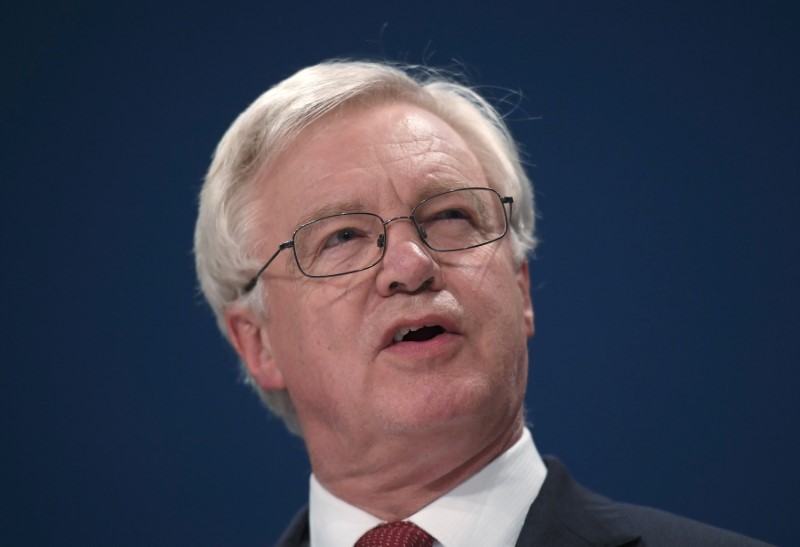By William James
BIRMINGHAM, England (Reuters) - Britain promised to negotiate an exit deal with the European Union that resolves deep concern in London's financial sector that Brexit will disrupt its business model, David Davis, the minister in charge of the talks, said on Tuesday.
The future of Britain's global financial centre will be a major negotiating point in talks with the EU on exiting the bloc, which Prime Minister Theresa May announced on Sunday would start formally by the end of March.
Banks are keen to retain the "passporting" rights that allow them to sell financial services across the EU from London, and have urged the government to reach a transitional deal to avoid disruption to financial markets.
"We will set about making sure that the things that people are worrying about like passporting are resolved, there's no question there," Davis said, speaking at an event organised by grassroots website ConservativeHome on the sidelines of the ruling Conservative Party's annual conference.
"We have to worry about it, but we don't have to fear it, because we can control it," he said on the future of the sector and the prospect of business being lost to EU competitors.
He said London had "insuperable" advantages such as being English-speaking, and that the City had "huge critical mass" in the global financial system.
Nearly 2.2 million people work in financial services in Britain and the sector contributed 190 billion pounds, or 11.8 percent of output, to the British economy in 2014.
On Monday, the UK head of U.S. bank Citi said that some jobs in London's financial sector would move to countries inside the European Union after Britain leaves the bloc, regardless of what deal is struck on access to the EU single market.
Davis also said a good deal for Britain to leave the European Union should help foreign car manufacturers, saying companies such as Japan's Nissan - which has voiced fears over higher tariffs - should not worry.
"We want the car manufacturing industry to be doing better, we want the finance sector to be doing better, with no constraints on them," he said when asked what the government could do to reassure investors.

Nissan Chief Executive Carlos Ghosn said last week he could scrap new investment in Britain's largest car plant unless the country pledged to pay compensation for any tax barriers being put up after Brexit.